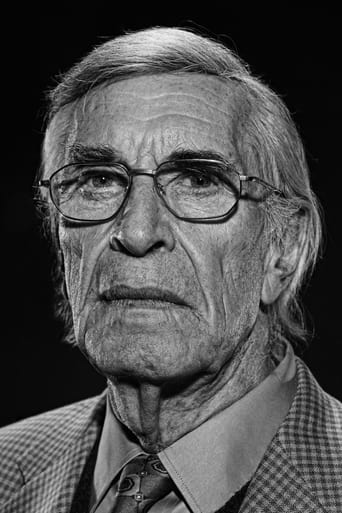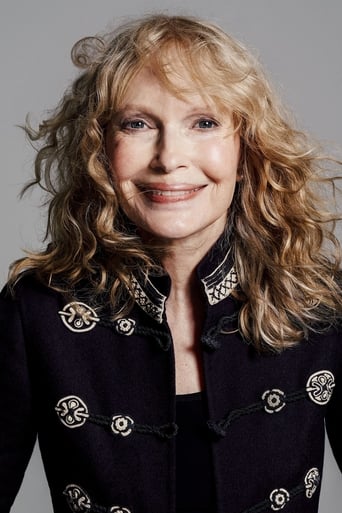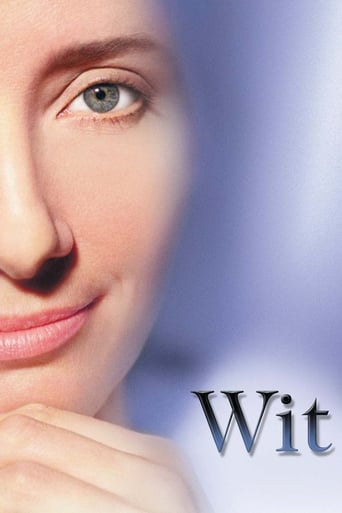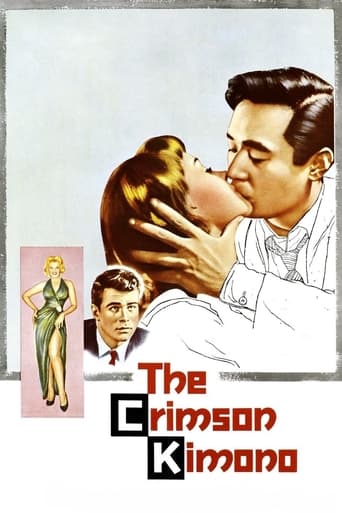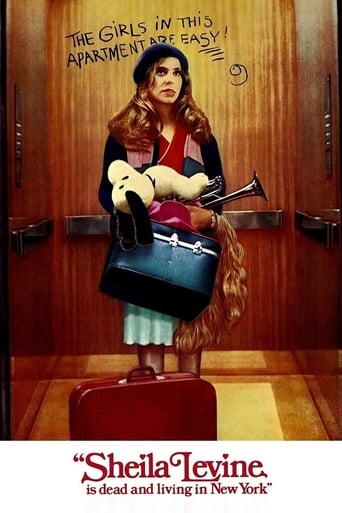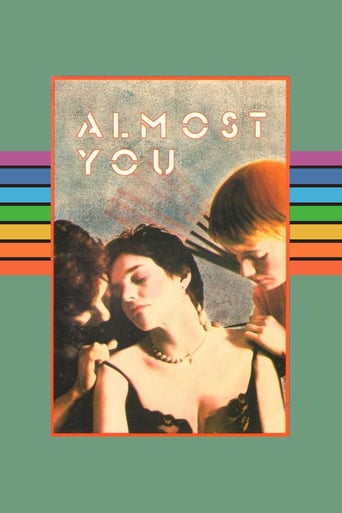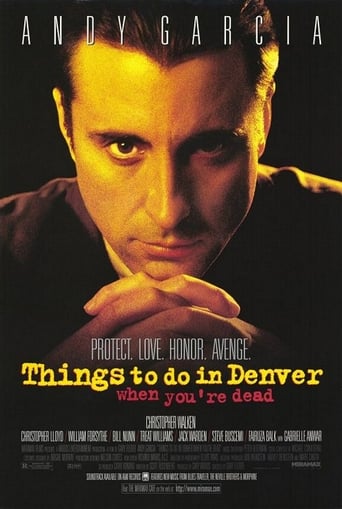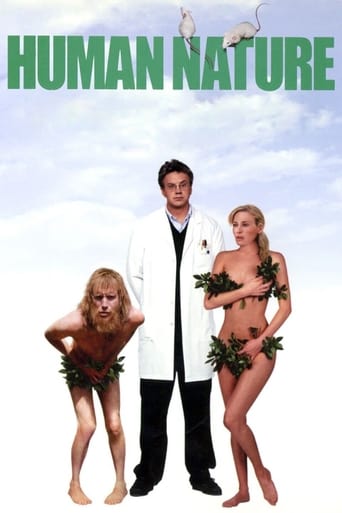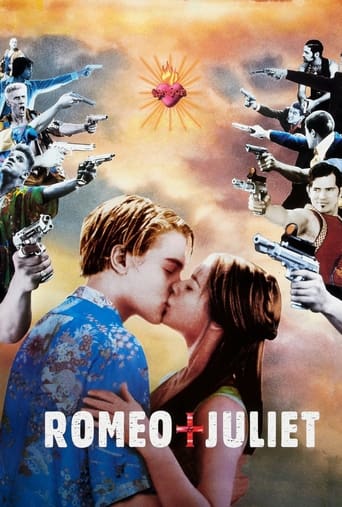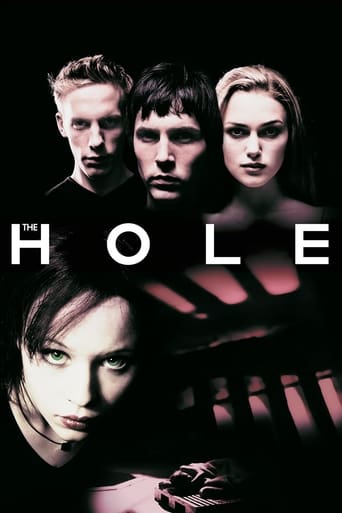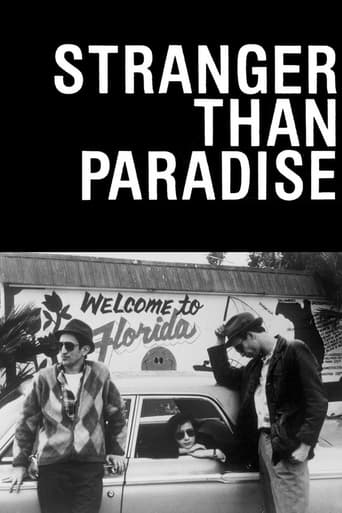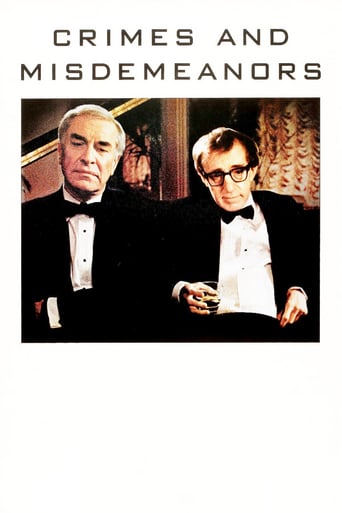
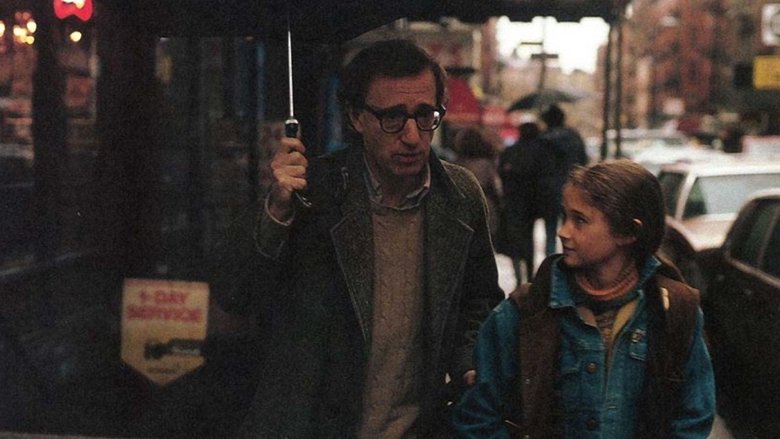
Crimes and Misdemeanors (1989)
An ophthalmologist's mistress threatens to reveal their affair to his wife, while a married documentary filmmaker is infatuated by another woman.
Watch Trailer
Cast


Similar titles
Reviews
One of my all time favorites.
It's entirely possible that sending the audience out feeling lousy was intentional
When a movie has you begging for it to end not even half way through it's pure crap. We've all seen this movie and this characters millions of times, nothing new in it. Don't waste your time.
An old-fashioned movie made with new-fashioned finesse.
Imagine if everything you were ever taught about moral, ethics and karma turns out not to be true? « You get what you give », « Good things come to good people », « Instant karma is gonna get you! ». We hear and often repeat these phrases, try to live well with ourselves and with others, be good citizens, do good. Many of us believe that this is not only the good way to go about life, but also expect to be rewarded because of our good behavior, to get what we want, to grow in life, have a great job, meet a nice partner, live well, prosper.This is, however, a Woody Allen story, and it may as well be his masterpiece. The story can be roughly divided in two, and centers on the lives of two very different men. One is Judah Rosenthal (Martin Landau), a married and successful ophthalmologist who suddenly starts facing problems with his lover (in a good performance by Anjelica Huston). The other man is the idealist and broke moviemaker Cliff Stern (played by Allen himself), facing family problems, a broken marriage and a work crisis. The stark difference between these two men turn the movie into a would-be duel between idealism and superficiality.Themes like our roles in society, religion, morals, existentialism, the final judgment and philosophy are thoroughly discussed in the movie, both directly in conversation but also reflectively through the actions of the different characters, without ever compromising the development of the story, nor the viewer's interest in it. Balanced in the comic paranoia of Allen's writing and acting, the story finds a meeting point between drama, irreverence and meaningful topics. Pertinent reflections and dialogues drive characters to often funny, often heavy situations, and many times both.« Crimes and Misdemeanors » represented a return of Woody Allen to comedy, after flirting with more psychologically driven stories, clearly influenced by Ingmar Bergman, as shown in previous works like « Another Woman » and « September ». Still, comedy here exists and at the same time does not, as the deeper reflections proposed by the movie can push the viewer into a different direction.Rosenthal's tale shows a man initially consumed by anguish over the decisions he needs to take. Whatever path he chooses will certainly leave a long-lasting and deep scar in his life. Humor is absent here, and Sven Nyqvist's cinematography (the same that often worked with Bergman) is dark and somber, reflecting the state of mind of the central character. Cliff's journey, however, is lighter and more comical, a typical portrait of Allen's characters played by himself. The different stories balance each other out perfectly: they offer the light after the darkness, the calm after the storm.Finally, and only towards the end of the movie, the two men meet and talk about the crimes and sins of real life, and what can their real consequences be. The encounter of these two seemingly so different characters, but who then suddenly realize that perhaps what they were always taught about life and morals could be wrong, could be considered an anagnorisis of Aristotle, a final realization, a critical discovery of things as they show themselves to be, not as we had constructed them in our imaginary. Are we indeed the sum of our choices?
An ophthalmologist (Martin Landau)'s mistress threatens to reveal their affair to his wife, while a married documentary filmmaker is infatuated by another woman.Allen excels when he takes philosophy, theology and other intellectual pursuits and blends hem with his love of cinema and classical music. Some are better than others, and this is among the best, bringing in Jewish morality, nihilism and Dostoevsky...Woody does not often tackle crime, but it is nice when he does. The theme would be revisited by Allen in his films "Match Point" (one of his best) and "Cassandra's Dream". Perhaps this is something he should focus on more often?
As a big fan of Dostojewskij I found this movie very appealing. The stories main plot has many analogical elements to the novel "Crime and Punishment". Both deal with the topic of murder and the terror it inflicts on the mind. In both cases the murderer (direct/indirect, does not really matter)believe that they own the right to get rid of their victim. In the book the murderer kills twice the second woman only because she appeared at the scene of the first crime. That probably added to the amount of terror and might give an explanation why Allen's character who only killed once and through a killer might be able to live on without any punishment. In both cases the denial of god or any moral structure leads to their action. Both are haunted by terror afterwords and it seems their minds wont be able to rest unless they turn them in or inflict any other sort of punishment on themselves. As I already mentioned in the movies case time eventually releases some of the terror and the protagonist appears to be able to live on. But the end is left open, it is not unlikely to assume that Judas terror might return. Nevertheless the ending offered by Allen to me is even more negative than what is happening in the novel. Allen suggests that people can commit that sort of crime and at some stage go back to their old lives. Judas escape into the comforts of a god or heavenly system seem a rather pathetic move to me. To me there is no way that Juda believes in god. He idealizes the idea of forgiveness and is completely oblivious to the moral duty one carries at the same time. We recognize that he feels some sort of moral responsibility but it is weak enough for him to evade it. That such thing is possible and I don't doubt that it is possible is a truly depressing thought indeed. The other plot does not offer much consolation either. The plastic character of Laster "wins" in the end by getting Halley, instead of his "opponent" Cliff. That suggests that what really matters to become happy is not seeking for any kind of truth or a better understanding of the human condition but to leave all this as it is and make the best of it. Thus money, success, huge confidence, the ability to deny, greed, beauty on the surface and hedonism wins over respect for ones neighbor, deep love, recognizing predicaments, being aware of death, melancholy and many other things. These are only categories to illustrate I know there is many other things that conflict with one another. The story is a true tragedy but it was built in wonderful manner. To me it is Allen's second best movie, after "Annie Hall" which I prefer because it offers a more optimistic idea of life and love and because Diane Keaton is in it:) The humorist elements in the film made me laugh harder than in most of his other movies because they come up in a very problematic context. They sometimes open up the possibility that we are dealing with the comedy but to me it is clearly something like a tragedy. I am still undecided about the film's ending. My first reaction was a little disappointment because it appeared to be too corny. A movie that denies morals ends with a sort of moral statement? I reflected it and it gained more favor:) The voice over is basically just telling us whats going on in the reality suggested by the movie. Even though many people live without a judge and it is basically all a big contest most people seem to enjoy life in one form or the other. People achieve/find happiness and realize that is only momentarily but seek again and deliberately accept the depressing moments happiness is followed by. I don't really see why the voice over puts faith or hope in future generations. To me it is a rather cynical statement by the director
Another Woody Allen delight, a diptych of two moral conundrums, Laudau, a well-off ophthalmologist who ultimately gets away with the murder of his badgering mistress (Huston), meanwhile a frustrated documentary filmmaker (Allen) flunks to win his love interest (Farrow) over a pretentious showbiz magnate (Alda).For Laudau's story, one can easily sniff out the comparability of Allen's later London-based MATCH POINT (2005, 7/10), the other women are merely dispensable in favor of wealth, social status and ostensibly stable matrimony. In this film, its main concern is the struggle within, the general moral conscience Vs. the guilt or the sin, and out of left field, it is the latter eventually prevails, with the trappings of a comfortable life, the murder becomes a petty snippet in his memory and time can put everything back into an equilibrium, it is beyond any religion's absolution. Landau delivers one of his best performances in his lengthy career, an outright leading role (again, shamefully the category fraud push him into supporting group in the Oscar race), a hypocrite sleekly justifies his selfish and heinous behaviors with superfluous paddings, a despicable person so full of life with mocking caricature and a tint of self-reflection, everyone has his or her own unsurmountable hurdle in reality, luckily the preponderance is able to rein the yardstick. Anjelica Huston breaks her lofty stereotype, to overplay an unreasonable mistress who is too desperate to shore up her wanting sense of security, as vexing and halfwitted as she is, her denouement is too much a punishment. As for Allen's romantic entwinement with Farrow and his doomed marriage, it brims with casual wisecracks and addicted cinema-goings, but the scene-stealer is Alda, whose character is blatantly based on the late writer Larry Gelbart, utters bon mots like, comedy is tragedy plus time; or if it bends, it's funny, if it breaks, it isn't. He is snobbish and lewd to everyone's eyes, yet he walks off with Allen's soul mate. Woody Allen is rehashing the same old self, and Mia Farrow refrains herself as an out-of-his-league dame, who speaks highly about her unrealized ambition in order to reject a man trapped in a dead wedlock, yet subservient to the mogul's courtship, it all boils down to the point of a woman's self-deceptive blindness towards material needs, with a collateral damage to her unsuccessful suitor. So in both stories, the female characters are less glamorous and adorable here, not to mention Allen's sister's icky sex encounter in the bedroom. The film is mostly brisk under the accompany of a jazzy score, and its debate on moral structure is a cogent one and could be a reference to all the contemporary marital or relationship mishaps, even the religious mumble-jumble has an epiphany on those non-believers.



